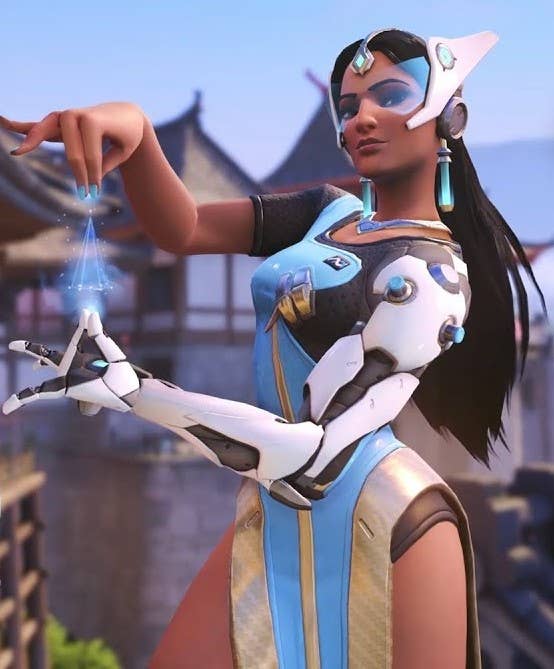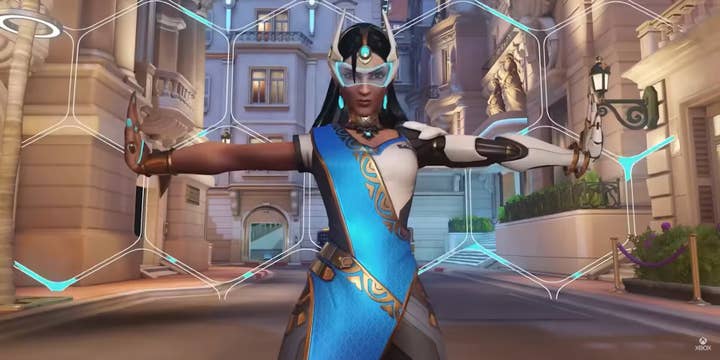Why aren't there more video game characters on the autism spectrum?
Representatives from Autistica Play explain why autistic representation in video games is more important than ever
Over the last few years, developers have become more aware of how important representation is. More and more characters of diverse races, genders and sexualities have come to the forefront of mainstream games. But one minority seems to have been overlooked: neurodiversity, especially those of us on the autism spectrum.
The UKIE Games Industry Census 2022 stated that the sector has a higher proportion of neurodivergent people working within it than the working age population, with 18% of respondents stating they have at least one neurodevelopmental condition. While the video game industry has been open to accepting employees on the spectrum, there seems to be a lack of autistic characters featured within video games themselves.
Alice Cooper, a lead on Autistica's Autistica Play programme, is keen to see this change: "Not enough progress has been made in autistic game character representation and we still have a long way to go. A couple of characters that stand out as good examples are River in To The Moon and Overwatch's Symmetra, although it took a fan theory about Symmetra being autistic for the developers to confirm that indeed she is.

"This highlights that representation needs to be clear and proud from the get-go. If game characters are autistic, this should be made explicit, rather than being alluded to through stereotypical behaviours. Autistic people are exactly that: people. People with varied identities, personality traits and facets to their lives, one of which is being autistic. They deserve to be represented as fully-rounded human beings, not as a collection of behaviours or mannerisms."
One of the reasons for the lack of autistic characters could be due to developers’ lack of understanding about the condition, which leads to autistic identities being either represented poorly or not represented at all. There are many games that use stereotypes associated with autism rather than trying to show players what the condition is really like. Dom Shaw, an ambassador for Autistica Play, explains how developers could represent autistic people in a more respectful way.
"If you try to represent a community and you don't talk to that community, you're straightaway already not representing them, because you don't even know what they're about," he says. "But if you can talk to, I would say, in a game development cycle, at least 20 people. Because through those 20 interviews, you can not only gather some common traits, but you can also create more characters.
"If game characters are autistic, this should be made explicit, rather than being alluded to through stereotypical behaviours"
Alice Cooper, Autistica Play
"You may talk to an organisation like Autistica, or other organisations that work with people on the spectrum, to have interviews with them, or interviews and families or allies really gain that bigger picture… So, for any UK developers, there's no excuse not to go on to Autistica to find out how they can better represent autism."
The lack of autistic representation has led many autistic people to adopt or head canon quirky characters as being on the autism spectrum. These characters usually have their eccentricity or social ineptitude used as fodder for jokes, for example Yusuke Kitagawa from Persona 5. This brings up the question of how autism can be respectfully and authentically represented in the games we consume. Cooper discusses how involving autistic people can help developers better understand those on the spectrum:
"Every autistic person is different. In order to represent autistic people in games authentically, developers need to involve autistic people. Development of autistic game characters must embrace autistic people as part of the creative process and playtesting. At Autistica, for example, we have the Autistica Insight Group, which is made up of around 250 autistic people and families. They collaborate with us to help ensure our research reflects the priorities of the autism community.
"Collaboration and co-production with autistic people will enable game developers to write autistic characters respectfully and authentically. That, in turn, helps make sure that people see autistic people for who they are: not a collection of traits or behaviours to be made fun of, but as real people who add a huge amount to the world around them precisely because they experience the world differently to neurotypical people."

As many autistic people are drawn to video games, it's incredibly important that they can see themselves and are represented in them. Shaw spoke about the importance of video games to numerous autistic people, including himself.
"Just like being on the spectrum itself, [the love of video games] is so driven by the individual. But obviously, there's common traits. And I'd probably say, based on my lived experience, but also my experience as an ambassador, it's the kind of combination that video games are interactive, they're engaging. You're not just listening to it, you're not only writing, you're actually getting involved, being truly engaged. And it's not only one way, it's a two-way thing because there's that output, but there's also that input that comes from people. And compared to a lot of others, it allows people who are on the spectrum to really have that control.
"A video game quite literally can be explaining, you can pause, you can do whatever you can then unpause, come back into it, and, you know, not be lost and still be where you were, and then you can get involved and do whatever the game has asked you to do. So, there's that a lot more control and a lot more engagement from video games. I think that's the key part, or the key reason why a lot of people on the spectrum gravitate to games."
Although there isn't much representation for autistic people in video game characters right now, it doesn't mean that there isn't hope. Just as we've seen a rise in representation for those of different races, sexualities and gender identities, there’s an opportunity for developers to create authentic and well-written autistic characters. With the right attitude and research, any developer could create a character that people on the spectrum can see themselves in.
